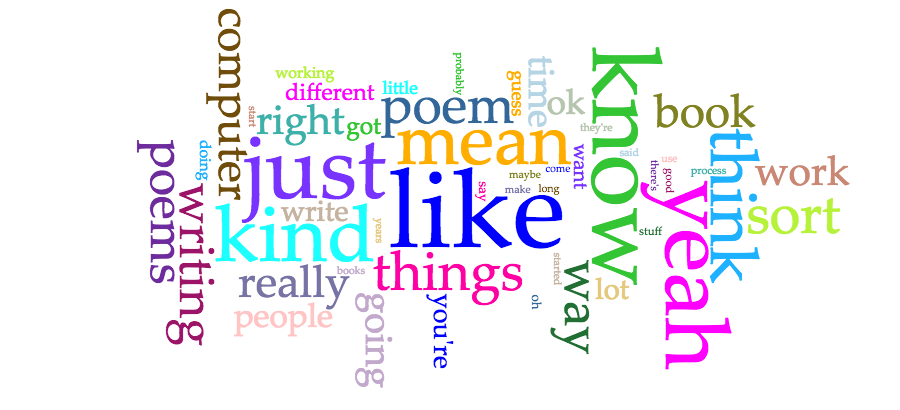Textual Analysis for Writers!

This workshop focuses on the use of textual analysis for the examination of one’s own writing. The writer inhabits a particularly interesting role in this process, as s/he will in some ways be the foremost expert on their own texts and at the same time be the most susceptible to misinterpretations of their own work.
We will introduce you to several powerful but user-friendly textual analysis tools that will allow you to take a step back from your own work to see trends and patterns you may or may not have been aware of previously.
Really Brief/Cursory Introduction to Textual Analysis
Textual analysis is ultimately a form of information visualization. To analyze a text or text, one needs to de-contextualize the initial content using computational tools.
This is a small example of what some in Digital Humanities call distant reading, which, as those who practice it are wont to point out, needs to be combined with close reading to elicit the best insights.
Benefits to Writers
- Ability to see “distant” view of one’s own writing
- Ability to see trends both unexpected and expected across a corpus of works
- Uncover your tics!
- Do you use the word “dark” all the time?
- Are you writing about a certain type of person repeatedly?
- Decontextualize and regroup your writing
- Using the tools here and others, one can start to create unique groupings of material that may not have occured to the writer before.
Contents:
Hosted by University of Idaho Library, 2018.
Theme: workshop-template-b by evanwill is built using Jekyll on GitHub Pages. The site is styled using Bootstrap with FontAwesome icons.
Content: CC BY-SA Devin Becker 2018 (get source code). 